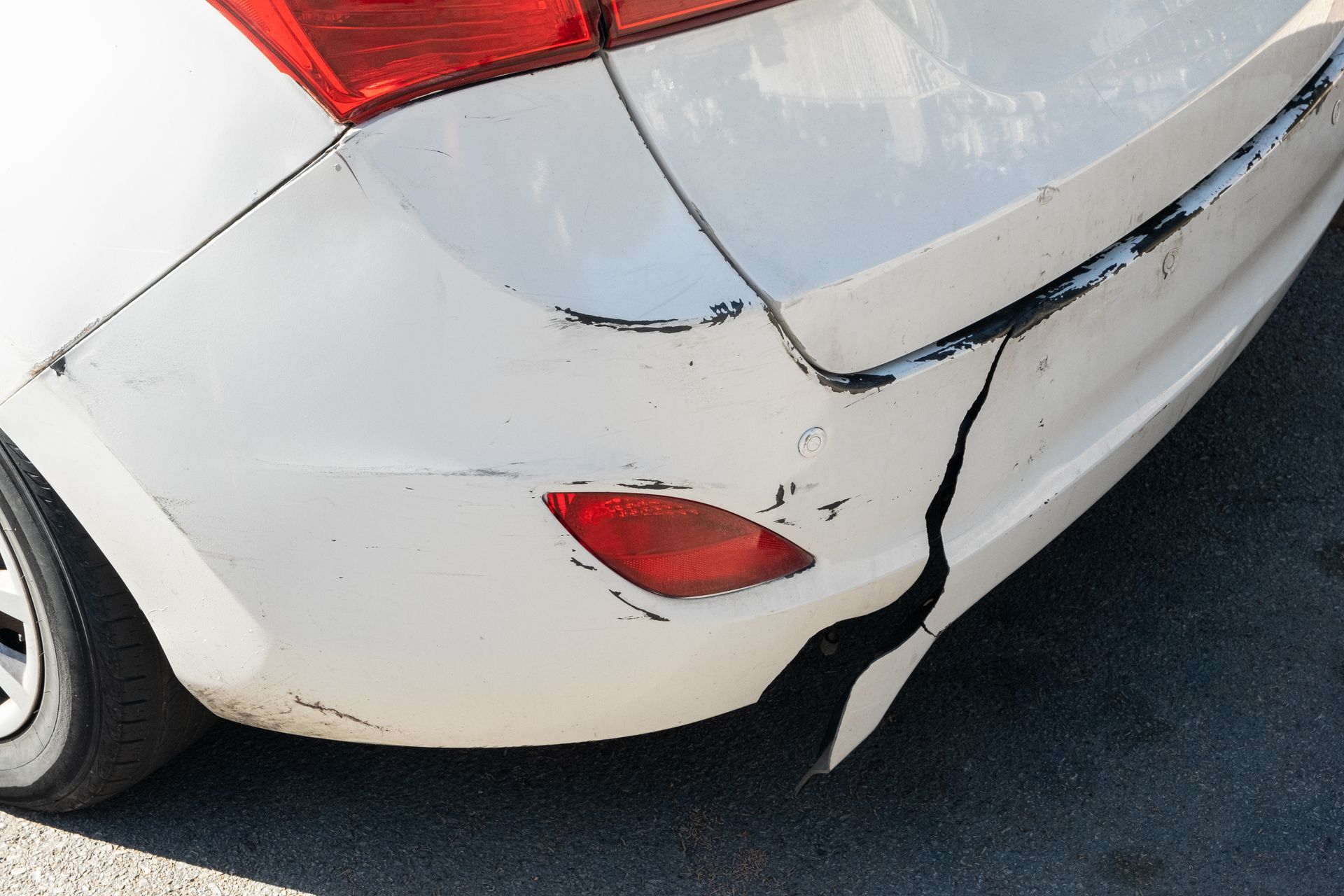By Joseph Zdrilich
•
April 23, 2025
Ah, Atlanta! The bustling gem of the South. When we wake each morning, this is our sentiment, but as soon as we turn onto the freeway, this euphoria wanes. It's understandable. With eight freeway lanes in some parts, thousands of truckers zooming up behind you, and everyone traveling at a high speed, it can get stressful. Knowing Atlanta's regulations for safety helps all of us reach our destinations and come home to our families. Atlanta's highways can be challenging, especially with the various safety regulations that drivers must follow. This guide will break down key aspects of these highway safety regulations, including common traffic laws and the necessary safety equipment for vehicles. By understanding these rules, readers will be better equipped to avoid penalties and preserve their safety on the road. Addressing potential confusion around regulations, this content will help motorists travel Atlanta's roads with confidence and clarity. Overview of Atlanta Highway Safety Regulations Key objectives of Atlanta highway safety regulations focus on reducing accidents, protecting drivers, and enhancing roadway safety. In the event of an accident, consulting an Atlanta car accident lawyer can be beneficial. Compliance with these laws is crucial for all drivers as it prevents crime and encourages lawful conduct on the roads. This section will detail the role of the National Highway Traffic Safety Administration and the importance of law enforcement in upholding these regulations. Key Objectives of Highway Safety Regulations The primary objectives of highway safety regulations in Atlanta center on reducing traffic accidents and protecting all road users. By implementing strict speed limits, requiring the use of seat belts, and enforcing laws against distracted driving, the regulations aim to mitigate risks associated with high-density traffic areas. Compliance with these laws not only results in safer driving habits but also plays a pivotal role in lowering injury rates on Atlanta's highways. Moreover, highway safety regulations are designed to enhance the overall driving experience by promoting responsible behavior among drivers. Law enforcement agencies actively monitor these rules to maintain order and prevent criminal activities on the roads. By making sure all motorists adhere to safety protocols, the goal is to create a secure environment where individuals can travel the roads with confidence, thus addressing common concerns related to road safety in urban settings. Importance of Compliance for Drivers Compliance with Atlanta highway safety regulations is essential for all drivers, not only for their own safety but also that of others on the roadway. Adhering to speed limits and traffic signals minimizes the risk of collisions, which is particularly important in areas with heavy congestion. Driving responsibly can significantly reduce accident rates and injuries associated with roadway incidents. Furthermore, understanding and following these regulations empowers drivers to make informed decisions while on the road. For example, using seat belts is a simple yet effective way to protect oneself during an unexpected event. By prioritizing compliance, drivers contribute to a safer driving environment, ultimately enhancing their own peace of mind and the well-being of the entire community. Common Traffic Laws in Atlanta Understanding common traffic laws in Atlanta is vital for safe driving. This section will cover key rules, including speed limits and their enforcement, lane changes and merging protocols, and the significance of various traffic signals and signs. Each topic will provide essential insights to help drivers travel the roads more safely and confidently. Speed Limits and Enforcement In Atlanta, speed limits play a critical role in maintaining safety on the roads. These limits vary depending on the type of road and area, with urban environments typically having lower limits to accommodate high traffic density. Drivers are encouraged to familiarize themselves with posted speed limits, as adhering to these regulations not only reduces the likelihood of accidents but also promotes a safer experience for all road users. Enforcement of speed limits in Atlanta is a priority for local law enforcement agencies, who actively monitor compliance through various methods, including speed cameras and patrols. Violations can lead to fines, points on driving records, and increased insurance rates, which further emphasizes the importance of following these regulations. By respecting speed limits, drivers contribute to safer road conditions and help reduce the stress and dangers associated with traffic congestion. Lane Changes and Merging Rules Lane changes and merging are critical components of safe driving on Atlanta's highways. Drivers must signal their intent to change lanes and ensure that the new lane is clear before making a move. This practice not only promotes safety but also allows for smoother traffic flow, which is especially important in high-traffic areas often found in urban settings. Furthermore, understanding the rules surrounding merging can significantly reduce the risk of accidents. When entering a highway, motorists should match their speed with that of existing traffic and yield to vehicles already on the road. These guidelines help create a predictable driving environment, allowing all road users to drive safely and confidently amidst Atlanta's bustling roadways. Understanding Traffic Signals and Signs Understanding traffic signals and signs is fundamental for safe driving in Atlanta. These signals, including red, yellow, and green lights, guide motorists on when to stop, proceed, or prepare to stop at intersections. Familiarizing oneself with these signs enhances compliance with traffic laws and contributes to a consistent understanding of road expectations among drivers. Moreover, various road signs provide critical information regarding speed limits, warnings, and directions. For instance, yield and stop signs require immediate attention from drivers to prevent accidents at intersections. By recognizing and responding to these traffic controls, drivers not only abide by Atlanta's regulations but also promote a safer environment for everyone on the road. Safety Equipment and Vehicle Regulations Seat belts and child restraints are mandatory for all vehicle occupants in Georgia, emphasizing the importance of safety equipment in reducing injury risks. Additionally, motor vehicle insurance mandates require drivers to maintain adequate coverage, safeguarding against potential losses. Lastly, adherence to vehicle maintenance standards means cars operate safely on Atlanta's highways. Understanding these regulations is vital for compliance and overall road safety. Requirement for Seat Belts and Child Restraints The requirement for seat belts and child restraints is a critical aspect of highway safety regulations in Atlanta. All vehicle occupants must wear seat belts, which serve as a primary defense against injuries during an accident. This simple action greatly reduces the risk of serious harm for drivers and passengers alike, highlighting the importance of compliance with this law. In addition to seat belts, proper child restraints are mandated for younger passengers to protect their safety on the roads. Parents and guardians must utilize age-appropriate car seats or booster seats that align with state laws. By adhering to these regulations, families contribute to a safer driving environment, significantly lowering the chances of injury in the event of a crash. Motor Vehicle Insurance Mandates In Georgia, motor vehicle insurance mandates ensure that all drivers maintain sufficient coverage to protect themselves and others on the road. This requirement means drivers must carry liability insurance, which covers damages they may cause to others in an accident, as well as medical expenses. Failing to comply with these mandates can lead to significant penalties, including fines and potential legal actions, which emphasizes the necessity of understanding these regulations. Having adequate insurance not only meets legal obligations but also provides peace of mind while driving. For example, a driver involved in an accident without proper insurance may face overwhelming out-of-pocket expenses for repairs and medical bills. Thus, adhering to motor vehicle insurance mandates is crucial for financial protection and promotes a safer driving environment on Atlanta's highways, encouraging responsibility among all motorists. Vehicle Maintenance Standards Vehicle maintenance standards are essential so cars operate safely on Atlanta's highways. Regular inspections of key components such as brakes, tires, and headlights help identify potential issues before they become serious problems. For example, a vehicle with worn brakes may struggle to stop effectively, increasing the risk of accidents in high-traffic situations. By maintaining their vehicles, drivers significantly contribute to a safer driving environment for themselves and others. In addition to routine maintenance, compliance with state vehicle regulations is crucial for all drivers. This includes checking fluid levels, making sure the windshield is free of cracks, and verifying that all lights function correctly. Proper vehicle maintenance not only provides adherence to legal standards but also enhances peace of mind on the road. An adequately maintained vehicle can reduce the likelihood of breakdowns, resulting in safer and more efficient travel throughout Atlanta's busy streets. Consequences of Violating Atlanta Highway Safety Regulations Violating Atlanta highway safety regulations can lead to significant consequences for drivers. Non-compliance may result in fines and penalties, which can add up quickly. Additionally, points may be added to driving records, impacting insurance rates and future premiums. Serious traffic violations can also lead to legal action, emphasizing the necessity of understanding and adhering to these important regulations. Fines and Penalties for Non-Compliance Violating Atlanta highway safety regulations can lead to significant fines and penalties for drivers. For instance, speeding can result in hefty tickets, which vary in amount based on how much the speed limit was exceeded. In addition, persistent violations may lead to points being added to a driver's record, which can elevate insurance premiums and create long-term financial repercussions. Another consequence of non-compliance includes potential legal actions arising from serious offenses, such as driving under the influence or reckless driving. These violations can lead not only to increased fines but also to possible jail time or loss of driving privileges. Understanding these penalties highlights the importance of adhering to safety regulations so drivers maintain a clean record and continue to enjoy safe travel on Atlanta's highways. Points on Driving Record and Insurance Implications Points accumulated on a driver’s record in Atlanta serve as critical indicators of driving behavior, influencing future insurance rates and overall eligibility. Each traffic violation, such as speeding or running a red light, can lead to points being added, potentially resulting in higher premiums with insurance providers. For instance, accumulating just a few points can prompt insurers to categorize a driver as high-risk, resulting in increased rates and limited coverage options. Maintaining a clean driving record is essential for Atlanta drivers, as repeated violations can lead not only to financial consequences but also to legal repercussions, including the possible suspension of driving privileges. Insurance companies closely monitor driving records, and drivers with points may face significantly higher premiums, creating a financial burden over time. Understanding the implications of points and striving for compliance with safety regulations can help drivers travel Atlanta's roadways more effectively while reducing the risk of penalties. Legal Actions Resulting From Traffic Violations Traffic violations in Atlanta can lead to serious legal actions that impact a driver's record and future. Offenses such as driving under the influence or reckless driving may result in court appearances, fines, or even jail time. These legal ramifications serve to underline the importance of adhering to highway safety regulations in order to prevent adverse consequences that could have lasting effects on an individual's driving history. In addition to potential criminal charges, drivers may face civil lawsuits due to accidents resulting from traffic violations. If a driver is found liable for causing an accident through carelessness, they may be required to compensate the affected parties for damages. Such outcomes emphasize the need for responsible driving behavior, as the financial and legal implications can far exceed the immediate fines associated with the initial violation. Innovative Technologies and Their Impact on Highway Safety Innovative technologies play a significant role in enhancing highway safety across Atlanta. The use of GPS and navigation tools aids drivers in choosing safe routes while avoiding traffic congestion. Adaptive traffic management systems in Atlanta optimize traffic flow by monitoring real-time conditions. Additionally, dash cameras and safety apps provide critical evidence and assistance during incidents, contributing to overall road safety. Use of GPS and Navigation Tools for Safe Driving The integration of GPS and navigation tools has transformed safe driving practices in Atlanta, allowing motorists to make informed decisions on their routes. These tools, by providing real-time traffic updates and alternative routes, help drivers avoid congested areas that may increase the likelihood of accidents. Consequently, users can travel roads with greater efficiency, contributing to reduced stress and safety on Atlanta's highways. Moreover, GPS technology can alert drivers to hazardous conditions or road closures ahead, enabling timely adjustments to their planned routes. This proactive approach to navigation not only minimizes the chances of getting caught in traffic but also reinforces adherence to highway safety regulations. By utilizing these innovative tools, Atlanta drivers enhance their safety and overall roadway experience, promoting a culture of responsible driving. Adaptive Traffic Management Systems in Atlanta The implementation of adaptive traffic management systems in Atlanta significantly enhances highway safety by optimizing traffic flow and reducing congestion. These systems utilize real-time data from various sources, such as traffic cameras and sensors, to monitor conditions and adjust traffic signals accordingly. This proactive approach helps alleviate bottlenecks, minimizing the likelihood of accidents in densely populated areas where traffic tends to build up. Furthermore, adaptive traffic management systems allow for timely responses to emergencies, such as accidents or road maintenance. When a traffic incident occurs, the system can reroute traffic and adjust signal timings to facilitate quicker access for emergency responders. By helping drivers travel safely and efficiently, these technologies contribute to a safer driving experience, aligning with Atlanta's commitment to improving overall roadway safety. Role of Dash Cameras and Safety Apps Dash cameras have become essential tools for drivers in Atlanta, serving as a valuable resource for documenting incidents on the road. These devices provide clear video evidence in the event of an accident, aiding motorists in resolving disputes with insurance companies and law enforcement. This level of transparency encourages accountability among drivers and enhances safety by discouraging reckless behavior. Safety apps complement the use of dash cameras by offering real-time alerts and navigation aids. These applications can inform drivers about traffic conditions, accidents, or hazards, allowing them to make informed decisions while driving. By integrating such technology, Atlanta motorists can use the roads with greater confidence, ultimately contributing to safer driving practices and compliance with highway safety regulations. Resources for Learning About and Understanding Highway Safety Regulations Official websites and state resources provide essential information on highway safety regulations, while local workshops and community programs offer practical insights into traffic laws. Additionally, online courses and certifications cater to those seeking to deepen their understanding of safe driving practices. Each of these resources empowers residents to drive Atlanta's roads confidently and stay informed about compliance and safety measures. Official Websites and State Resources Official websites, such as the Georgia Department of Transportation and the Georgia Governor's Office of Highway Safety, serve as essential resources for understanding highway safety regulations in Atlanta. These platforms provide comprehensive information about traffic laws, safety initiatives, and updates on rules impacting local drivers. By visiting these sites, residents can access current guides and reports that enhance their knowledge of safe driving practices and compliance requirements. State resources also include interactive tools and databases that help individuals stay informed about their rights and responsibilities on the road. For example, drivers can report concerns or learn about educational programs aimed at promoting road safety. Utilizing these official channels makes sure individuals are equipped with the necessary insights to use Atlanta's highways safely and responsibly, ultimately contributing to a safer driving environment for everyone. Local Workshops and Community Programs Local workshops and community programs in Atlanta serve as valuable resources for individuals seeking to deepen their understanding of highway safety regulations. These interactive sessions often cover various topics, including traffic laws, safe driving techniques, and the importance of compliance with safety standards. By participating in these workshops, residents gain practical insights that can enhance their driving skills and enjoy safer navigation through Atlanta's busy streets. Moreover, community programs frequently collaborate with local law enforcement and traffic safety organizations to provide real-world examples and hands-on training. This engagement offers residents the opportunity to ask questions, share experiences, and receive personalized guidance on adhering to highway regulations. Such initiatives emphasize the importance of community involvement in encouraging safety on the roads, ultimately benefiting all drivers in Atlanta. Online Courses and Certifications on Traffic Laws Online courses and certifications on traffic laws provide valuable opportunities for individuals seeking to deepen their understanding of highway safety regulations in Atlanta. These educational programs cover essential topics such as speed limits, proper signaling, and the importance of using safety equipment. By participating in such courses, drivers can gain the knowledge necessary to travel Atlanta's roads confidently while maintaining compliance with established traffic laws. Many online platforms offer flexible learning options, allowing participants to complete courses at their own pace. These courses often include interactive modules and quizzes to reinforce learning and assess understanding. By taking advantage of these resources, drivers not only enhance their safety knowledge but also contribute to a culture of responsible driving within the Atlanta community.



